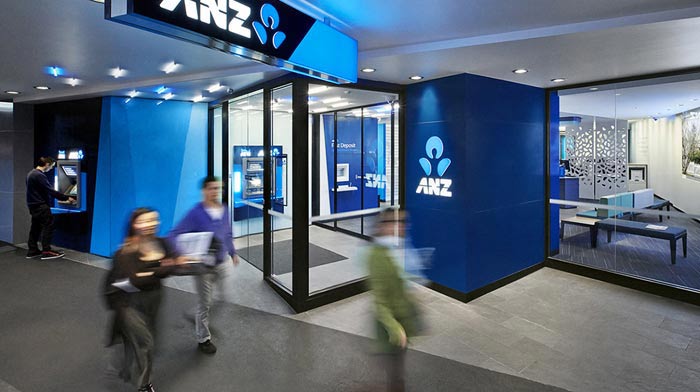Keynote address by Dr Raphael Arndt, Chief Executive Officer at the Australian Financial Review’s Alpha Live Conference, Sydney, New South Wales
Introduction
Good morning. It is a pleasure to be here today.
Today’s conference is about looking forward. About debating the complex investment issues we are facing. But I want to start by looking back.
Sixty years ago Donald Horne wrote The Lucky Country.
Horne was a critic of Australia in the early 1960s. He believed Australia’s position as a wealthy country was based on luck more than skill, ingenuity or innovation.
As the CEO of the Future Fund, managing $250 billion across six funds for the Commonwealth Government – its biggest financial asset – my job is to make sure that we are delivering returns based on skill, and not relying on luck.
The value we add to the funds we manage strengthens the Australian Government’s long-term financial position, supports medical research, assists Indigenous Australians, supports drought resilience and communities impacted by natural disaster, and helps to fund Australia’s National Disability Insurance Scheme.
All of these outcomes are possible because, as a country, we heeded Horne’s advice and invested in developing the skills necessary to improve our quality of life.
Just like in Horne’s 1960s Australia, we again find ourselves at a turning in history. Population growth, globalisation, increased borrowings and ever lower interest rates have fuelled strong economic performance for decades. The same factors have applied globally, helping millions of people escape poverty and providing strong support for investment returns. All of these factors are now reversing.
Add to this the new challenges created by technological disruption and climate change and we have a recipe for upheaval in global economies and markets.
In 2021 we issued a call to attention, publishing A New Investment Order which predicted a return of inflation and rising interest rates, more conflict and de-globalisation. We recently explained how we are investing into this more challenging world with a second paper – The Death of Traditional Portfolio Construction?
If you haven’t already, I encourage you to read them. Forward looking returns are challenged and it is time to change how we invest if we are to be successful.
I don’t have time today to explain everything the Future Fund is doing to change how it invests in this new environment, but it is a lot. Today I will pick out just a few examples of how we are changing to examine in more detail.
In an investment sense we need to move on from being The Lucky Country.
We now have to be The Skilful Country.
In investment speak we could call this a search for Alpha.
Today’s context
How can we be so sure that things are changing?
Only twelve months ago the RBA cash rate was 0.1% – it is now 3.6% – still a low level by historical standards.
After decades of a benign geopolitical environment, today war has returned to Europe and countries in our region are spending more on defence than they have in decades.
The world is de-globalising. Tariffs and trade barriers are re-emerging.
The US ‘CHIPS’ Act and Inflation Reduction Act are examples of governments seeking to direct capital investment, a practice which is typically inflationary and detracts from potential economic growth.
These changes are significant and rapid. When I started thinking about this speech, Credit Suisse still existed. So did Silicon Valley Bank.
Today I want to talk about two of the ways in which we are responding to this changed environment – firstly the search for alpha and secondly the rising importance of responsible investing.
The role for Alpha
Alpha and skill-based strategies have always been integral to the Future Fund’s approach.
In today’s environment, where the role of beta is challenged, the role of Alpha in portfolio construction is more important than ever. In other words – just having capital is no longer enough to ensure decent returns.
A previously considered safe investment like an office building or shopping centre is no longer safe. A large cap company can be split up, regulated or its markets disrupted.
There are no set-and-forget investments any more.
Beta returns will not be enough to ensure a comfortable retirement, or in the case of the Future Fund, to meet challenging investment mandates.
For the last five years we have primarily sought to include skill-based strategies through our Private Markets and Alternatives (or Hedge Funds) programs.
In light of the changes occurring in the world and in markets, we are now seeking Alpha more broadly.
Around six years ago we pivoted our Listed Equities approach away from active managers. At that time markets were being driven by central bank policies and our view was that it was nigh on impossible for active equities managers to consistently add value over and above their fees.
Conditions have changed. Economies are diverging and companies can better distinguish themselves in a more challenging environment. As a result, active Alpha-seeking strategies in our $65 billion Listed Equities program are increasingly attractive, provided that we can be confident that returns are driven by skill and not luck.
We are using new technology to better understand the drivers of returns being delivered by investment managers – to better understand whether skill actually exists or whether managers are just applying a mechanical strategy which can be re-created cheaply.
Markets are constantly changing and we must evolve our strategy in response.
For example, changes in domestic markets have made small cap equities attractive to us for the first time and we have commenced a new program to invest in them in recent months.
We are doing everything we can to search out skill wherever it exists.
Skill is rare, and expensive. Paying sometimes high fees to fund managers is necessary to access skill. Because of this, investors sometimes shy away from skill-based strategies.
In my view, investors should be questioning these trade-offs again.
If beta returns are challenged, will they challenge current fee budgets to access more alpha?
Can they truly replicate best in class performance with internal teams?
That may be true for some investors in some strategies but surely cannot succeed for all investors across all strategies.
Will they be more dynamic with portfolio construction as market conditions change?
Will they invest meaningfully in technology to understand what is in their portfolios?
These are the questions investors need to consider in these challenging times.
ESG
I now want to turn to a second issue – responsible investing and societal expectations.
Donald Horne spoke of generational conflict and change. Sixty years ago that was the struggle young baby boomers had to express themselves as individuals and to rail against big institutions.
Such generational change is underway again. Societal expectations are evolving, driven by demographics and the changing aspirations of young people.
As CEO of the Future Fund, I am acutely conscious that investing is about buying a long-term stream of cashflows or returns. Fundamentally, I am concerned to ensure that any business we invest in will meet societal expectations, not only today, but into the future.
A business that fails to do this will fail to deliver long-term returns. Larger and more intrusive governments will be more likely to intervene, to regulate or break up a company which falls foul of changing societal expectations.
This thinking underpins our robust approach to integrating ESG into our investment process.
Because we don’t talk about it frequently, people sometimes misinterpret our quiet, but firm voice on these matters as a lack of ambition or conviction in our approach.
Nothing could be further from the truth.
As a long-term investor, incorporating and seeking to understand all drivers of risks and returns is critical – and this includes ESG considerations.
We’ve been formally integrating ESG into our investment decision-making and processes since the Board approved our very first ESG policy back in 2009.
What we do on ESG is not separate to the investment process. It is part of it.
We review every new investment opportunity through an ESG lens.
In exercising our rights as an asset owner, we generally believe engagement is more effective at driving change than excluding companies from our investment universe.
Earlier, I touched on how modern technology allows us to understand the drivers of, and contributors to, return. We are also using technology as a tool to look through our portfolio to better understand ESG matters – from controversial company behaviour to climate and modern slavery risks. Increasingly, any of our investment professionals can understand the issues in their portfolios at a glance – and ensure that our investment managers are taking action where that is appropriate.
The Future Fund’s approach to ESG reflects what I was talking about earlier in terms of paradigm shifts.
Namely, the world is changing. Investors need to ensure that they bring this perspective when making decisions about where to allocate capital for the long term.
Decarbonisation
Let me explore our approach in greater detail by talking about how we, as a long-term investor, are approaching the global decarbonisation task.
The global transition to reduce emissions – particularly in the energy sector – is the biggest capital expenditure program that we will see in our lifetimes. In the US, the Inflation Reduction Act is a game changer in pulling through new technologies to support this transition.
Every asset will be impacted in some way by the low carbon transition. Either directly, through supply chains, or by changing consumer preferences. As physical risks emerge, this will add another layer of complexity that will disrupt our systems even further.
All of this makes the world which we invest into a more complex place to navigate. Recognising the scale of this profound transformation, a few years ago our investment team led a program of work to understand what it meant for our portfolios and how we should position them going forward.
So, what specifically are we doing?
We have integrated transition and physical climate risk scenarios into our whole-of-portfolio investment strategy and our scenario testing.
We have analysed the impact of climate change on the critical infrastructure assets that we own.
We are investing into renewable energy, including as an owner of 40% of Tilt Renewables, Australia’s largest wind and solar generation business with 1.7GW of operational and under construction assets and a development pipeline of 2.6GW of wind, solar and battery storage projects.
We have a cross-sector working group which meets regularly to discuss issues and share insights around the risks and opportunities arising from climate change and the response to it. This spans investment opportunities not just in infrastructure and utilities but also in property, private equity and hedge funds.
We are engaging with investee companies to understand their transition and resilience planning.
And we are investing into technology solutions supporting decarbonisation through our Private Equity program.
We have previously spoken about how we exercise our voting rights for listed equities that we own.
Where a company is not meeting our expectations, or they are not responding to the concerns that we raise through our engagement, we will hold them to account through our stewardship and voting practices.
As a long-term investor, we give considerable thought to building portfolios that are resilient to the changes we are living through – and including sustainability considerations in an integrated way is an important part of this.
In 2023 ESG integration is not just a box ticking exercise. Thinking long term is not about marketing or excluding well-run companies that are working on transition plans. We know that society demands its institutions act responsibly and sustainably – for the long term. We take the same approach to the companies we invest in.
Conclusion
To conclude, we are experiencing some of the most profound changes in living memory. To succeed as investors we need to change how we think.
Today I have given some examples of how the Future Fund is changing its approach. By relentlessly searching for Alpha, by using technology to make sure we are buying skill and not luck, and by thinking long-term and responsibly, we are building more resilient portfolios which can generate better returns, irrespective of the market environment.
This is the most important conversation any investor can have today. Every one of us should be talking about the New Investment Order.
I am sure this will be a recurring theme during the course of today’s discussions. I am looking forward to hearing the debate and the ideas generated.
To return to Donald Horne – sixty years ago he raised concerns, but also focused on solutions. For Horne, it was the characteristics of Australians – a sense of reserve, being adaptable, being sceptical, having the ability to improvise, and showing courage – which he saw as important in creating an environment for problem solving and future success.
These are all attributes we can draw on in seeking to invest differently going forward. While I hope we will all be lucky, I am sure that we can be skilful if we turn our minds to the challenges ahead.
Thank you.







